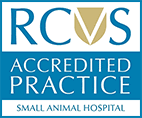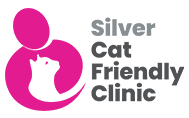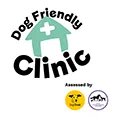Every client coming into the practice will have no doubt seen or spoken to one of our veterinary nurses... but who are they and what do they do?
The veterinary industry is sadly lingering a little behind human medicine when it comes to titles and job roles. In order to call yourself a nurse in the NHS you must hold the relevant qualifications, sadly within the veterinary industry anyone can call themselves a veterinary nurse because the title isn't protected.
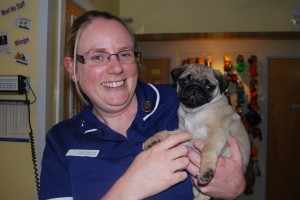 What does this mean?
What does this mean?
This means that any member of staff, even if they are untrained can call themselves a nurse and complete nurse duties. This includes giving injections and even monitoring your pet during a general anaesthetic, which is a scary thought!
But don't panic!
Here at Brentknoll, we only allow fully qualified Registered Veterinary Nurses (RVNs) to complete such tasks. Our RVNs have completed several years of training, both in practice and at college or university in order to offer highly skilled assistance to our Veterinary Surgeons. This ensures the highest level of care for your pets whilst they are in our care.
Brentknoll is a training practice... but what's the big deal?
To become an approved Training Practice, a clinic must offer the clinical training and work experience essential to qualify as a veterinary nurse. There are strict requirements that we have to meet and we are regularly assessed by the Royal College of Veterinary Surgeons (RCVS) to ensure we fit the bill.
Our trainees are paired up with either a Vet or a Senior RVN during their training, they are taught all of the necessary practical skills and are given advice and guidance with their studies in preparation for their exams.
Meet the Nursing Team
Consult Assistants - (Left to Right - Amy Hope and Mason Lloyd)
Consult assistants have not yet started their nurse training but are gaining experience through assisting the vets in consultations. They learn about medication, lots of cleaning, practice restraining animals and observe clinical procedures when suitable.

Student Nurses - (Sammie Preece)
Student nurses have started their training and are usually all at different stages in their courses, they get more responsibilities as their training and knowledge increases. This may include caring for inpatients before and after surgery, administering medication to animals, cleaning and assisting in surgical procedures.

Registered Vet Nurses - ( Laura Elliott)
Having completed their training, they run our daily nurse clinics; where they help clients with nutrition advise, post operative check ups and general health care like nail trimming and implanting microchips. They are responsible for monitoring anaesthetics during surgery and more complex tasks like taking blood samples and inserting catheters for the vets.

How do I become a Veterinary Nurse?
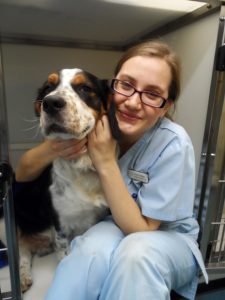 There are different routes you can take in order to become a vet nurse, you can complete a vocational training or via a higher education qualification.
There are different routes you can take in order to become a vet nurse, you can complete a vocational training or via a higher education qualification.
Hands on learners may prefer the vocational training, this route allows you to work in a practice and 'learn on the job', it is flexible and can be full or part time to fit around working in practice.
For further information on training and entry requirements click here.
If you prefer the academic route, a degree course may suit you better. However, it does take a little longer than a vocational qualification and you will still be required to complete placements in practice. A degree in veterinary nursing offers the opportunity to work in a variety of fields within the veterinary industry (as well as working in clinical veterinary practice.)
To find out more about the academic route click here.
Here at Brentknoll we have a waiting list due to our reputation as an excellent training facility, we have high clinical standards and expect the best from our nurses. We advise those wishing to pursue a career in Veterinary Nursing to apply for work experience in as many animal based industries and businesses as possible (kennels, dog walkers, groomers, rescue shelters, farms, veterinary practices etc).
Show you are serious as it's a competitive industry... but a great one to be a part of.
What do Nurses do, Brentknoll Veterinary Centre, Worcester



